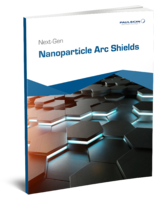Drug Delivery Film/Rod can be custom blended and extruded.
Press Release Summary:

Custom extruded film and rod can be made with customer-specified active pharmaceutical ingredients and range of polymer formulations, including EVA, bioresorbable, and water-soluble polymers. With output intended to aid implant, patch, and oral drug delivery applications, approach combines material blending with direct extrusion shape forming. Production capabilities include drug/polymer films in widths of 2-5.5 in. and thicknesses of 0.0012-0.0394 in. and solid rods from 0.020-0.315 in.
Original Press Release:
Foster Corporation Introduces Custom Drug Delivery Film and Rod
PUTNAM, CT, USA - Foster Corporation, a PolyMedex Discovery Group company and leader in biomedical materials, has introduced custom extruded film and rod from drug/polymer blends for implant, patch and oral drug delivery applications. Working with customer specified active pharmaceutical ingredients and a range of polymer formulations, including EVA, bioresorbable and water soluble polymers, Foster is able to support customers from formulation development through clinical production of advanced drug delivery systems.
Foster's dedicated business unit for highly regulated materials, Delivery Science, specializes in blending polymers and active pharmaceutical ingredients with twin screw extrusion technology in a cGMP clean room environment. Traditionally the company provided custom blends in pellet form for conversion into shapes used for drug delivery. These shapes included film for mucosal and transdermal patches, and rods for implantable drug delivery. Foster now also offers a range of custom film and rod extrusions for these applications.
Foster's unique approach combines material blending with the direct extrusion shape forming process, which provides a significant advantage for polymers with active pharmaceutical ingredients. "Many active pharmaceutical ingredients are temperature sensitive. Heat histories associated with multiple processes that risk degradation of the drug can severely limit a particular delivery platform," said Tony Listro, Delivery Science Managing Director. "Direct extrusion removes a heat history associated with independent processing of film or rod for pre-compounded pellets, reducing the risk of degradation to the drug. Performing the entire process in a single cGMP controlled facility consolidates supply and regulatory logistics."
At the present time Delivery Science can produce drug/polymer film in widths of 2 to 5.5 inches (50.8 - 139.7 mm) and thicknesses of 0.0012 to 0.0394 inches (0.03 - 1.00 mm) and solid rods ranging from 0.020 to 0.315 inches (0.508 - 8.0 mm).
For more information, please visit www.fostercomp.com.
Note: If you would like more information about this story, or if you would like to speak with a Foster spokesperson, please contact Kris Jommersbach at krisj@geminiinc.com




